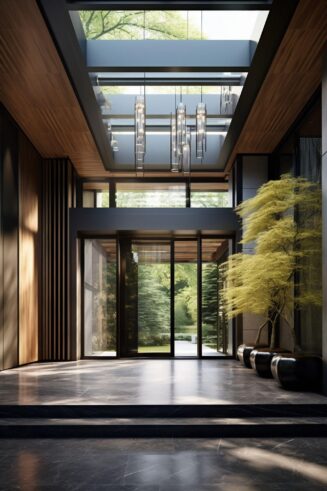
Understanding the Impact of Climate: How Does Florida’s Climate Affect Your Patio Screen?
Florida, the Sunshine State, is famous for its warm, tropical climate. With average temperatures rarely dipping below 60°F, it is a haven for sun-seekers. However, this unique climate can have profound effects on your property, particularly your patio screen.
In Florida, your patio screen is not just an addition to your home; it’s a necessity. It provides a barrier against insects, allows you to enjoy the outdoors without worrying about the weather, and adds value to your property. But the elements that make Florida such a desirable place to live can also take a toll on your patio screen.
The hot sun, high humidity, and frequent rainfall characteristic of Florida’s climate are all factors that can accelerate wear and tear on your patio screen. But understanding these impacts can help you make informed decisions about screen materials, maintenance, and replacement.
How Does Florida’s Climate Affect Your Patio Screen?
The climate in Florida is characterized by long, hot summers and short, mild winters. This warm, tropical climate poses a unique set of challenges for your patio screen. High temperatures and humidity can cause your screen to deteriorate faster than in cooler, drier climates.
In the heat of the summer, your patio screen is subjected to intense UV rays for extended periods. This exposure can cause the screen material to become brittle and prone to tearing. Additionally, the high humidity levels can lead to condensation, which can cause rusting in metal screens.
The frequent rain showers can also be detrimental to your patio screen. Rain can lead to water damage, causing the screen to sag and the frame to rot. Furthermore, the combination of heat, humidity, and rainfall can lead to the growth of mold and mildew on your patio screen, which can be a health hazard as well as unsightly.
Understanding the Effects of Florida’s Heat and Sun on Your Patio Screen
Florida’s heat and sun are a constant presence, and your patio screen bears the brunt of this exposure. Prolonged exposure to the sun’s UV rays can cause your patio screen to fade and lose its strength. Over time, this can lead to tears and holes in the screen, reducing its effectiveness.
Heat can also cause your patio screen to expand and contract. This constant fluctuation can put strain on the screen and the frame, leading to damage over time. It’s important to understand these impacts and to choose a screen material that can withstand these conditions.
Exploring the Impact of Florida’s Humidity and Rain on Your Patio Screen
In addition to heat and sun, Florida’s climate is also characterized by high levels of humidity and frequent rain showers. These elements can have a significant impact on your patio screen.
Humidity can cause condensation to form on your screen, leading to water damage. This can cause the screen to sag and the frame to rot. Additionally, the high moisture levels can lead to the growth of mold and mildew on your screen. This not only looks unsightly, but can also pose a health risk.
Rain is another factor to consider. While your screen provides some protection from the rain, it can still lead to water damage. This is particularly true if the screen is not properly maintained.
Weather-resistance: What to Look for in Patio Screens in Florida
Given the harsh climate conditions in Florida, it’s important to choose a patio screen that is weather-resistant. But what exactly should you look for?
Firstly, the material of the screen is crucial. Synthetic materials such as fiberglass and polyester are highly resistant to the effects of sun, heat, and humidity. They are also less likely to tear or fray compared to natural materials.
Secondly, the frame of the screen should be made of a material that is resistant to rust and corrosion. Aluminum, for example, is a popular choice due to its durability and resistance to rust.
Finally, the construction of the screen should be sturdy and robust. This will help it withstand wind and rain, as well as the constant expansion and contraction caused by the heat.
The Importance of Regular Maintenance to Combat Climate Effects
Regular maintenance is critical to prolonging the lifespan of your patio screen in Florida’s harsh climate. This includes regular cleaning to remove dirt and debris, which can cause the screen to deteriorate faster. It also involves checking for any signs of damage, such as tears or holes, and repairing them as soon as possible.
Proper maintenance also helps to prevent the growth of mold and mildew. This involves ensuring that the screen is properly ventilated to prevent condensation, and treating any signs of mold or mildew as soon as they appear.
Finally, regular maintenance includes checking the frame of the screen for any signs of damage or rust, and replacing any damaged parts as necessary.
Best Practices to Protect Your Patio Screen from Florida’s Climate
Protecting your patio screen from Florida’s climate involves a combination of proper installation, regular maintenance, and the use of weather-resistant materials. Here are some best practices to follow:
Firstly, ensure that your screen is properly installed. This includes making sure that it is securely attached to the frame, and that there are no gaps or tears that could let in insects or rain.
Secondly, carry out regular maintenance. This includes cleaning the screen regularly, checking for any signs of damage, and carrying out any necessary repairs.
Finally, consider using a protective coating on your screen. This can help to protect it from the sun’s UV rays, as well as from rain and humidity.
Top Patio Screen Options for Florida Homeowners
When it comes to choosing a patio screen for your Florida home, there are several options to consider. These include:
- Fiberglass screens: These are lightweight, durable, and resistant to the effects of sun, heat, and humidity. They are also easy to install and maintain.
- Polyester screens: These are more durable than fiberglass screens, and are highly resistant to tearing and fraying. They are also resistant to the effects of sun, heat, and humidity.
- Aluminum screens: These are highly durable and resistant to rust. However, they can be more expensive than other options.
- Solar screens: These are designed to block out the sun’s UV rays, helping to keep your patio cool and protecting your screen from sun damage.
Seeking Professional Help: Patio Screen Services in Florida
While it’s possible to install and maintain your patio screen yourself, sometimes it’s best to seek professional help. There are many patio screen services in Florida that can help you choose the right screen for your home, install it properly, and carry out regular maintenance.
These professionals have the knowledge and expertise to ensure that your screen is capable of withstanding Florida’s harsh climate. They can also provide advice on how to prolong the lifespan of your screen, and can carry out any necessary repairs or replacements.
Conclusion
Florida’s unique climate poses a unique set of challenges for your patio screen. However, by understanding these challenges and taking the necessary steps to protect your screen, you can ensure that it remains functional and attractive for many years to come.
Choose materials that are resistant to the effects of sun, heat, and humidity, carry out regular maintenance, and consider using a protective coating. And remember, if you need help, there are many professional patio screen services in Florida that are ready and willing to assist.
Your patio screen is not just a part of your home; it’s a part of your Florida lifestyle. So take care of it, and it will take care of you.
outdoor space.
Th




